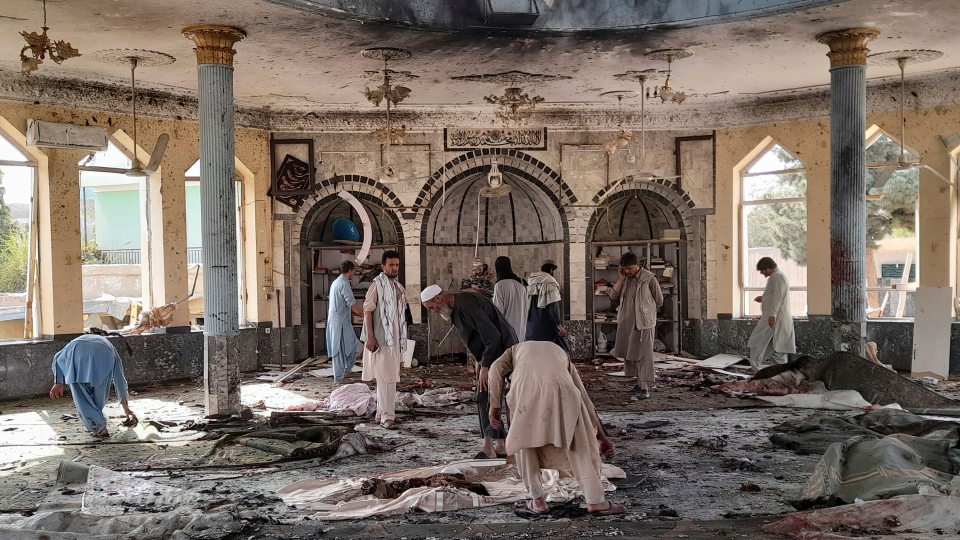In a tragic incident, the Islamic State group carried out a suicide attack at a Shiite mosque in Pul-i-Khumri, the capital of Baghlan province in northern Afghanistan, claiming the lives of at least 17 people on Friday. The assault took place during Friday prayers at the Imam Zaman Mosque, the largest Shiite mosque in the city.
The attack, believed to be executed by a single suicide attacker, occurred around 1:30 p.m., with the explosion taking place in the midst of a crowd of worshippers. Hospital officials and eyewitnesses reported the death toll, while Taliban officials contested the numbers, stating seven casualties.
Witnesses described a chaotic scene, with dozens of people injured and the mosque's interior stained with blood. The aftermath was captured in videos and photos shared on social media, depicting the destruction caused by the blast.
Sayed Mujtaba Hashemi, whose father serves as the imam of the mosque, recounted the harrowing experience of the attack. He described the moment the explosion occurred, leading to people being thrown to the ground. After the blast, he found his father alive but injured, with pieces of metal lodged into his neck and hand.
Hours later, the Islamic State affiliate in the region, known as ISIS-K, claimed responsibility for the attack, according to the SITE Intelligence Group. ISIS-K, a Sunni extremist group founded in 2015, has particularly targeted Shiite Muslims in Afghanistan, including the predominantly Shiite Hazara ethnic minority. Shiites constitute around 10% of Afghanistan's population, with the majority being Sunni.
The rise in ISIS-K attacks has continued even after the end of the U.S.-led war in Afghanistan, with the group expanding its violence into areas previously untouched by its activities. The group has been critical of the Taliban administration, accusing it of not implementing true Shariah law. In response, the Taliban has conducted a rigorous crackdown on ISIS-K, leading to some fighters fleeing into Pakistan, where the group has carried out significant attacks in recent months. The incident serves as a grim reminder of the persistent security challenges faced by the region despite the end of the U.S.-led war.

















